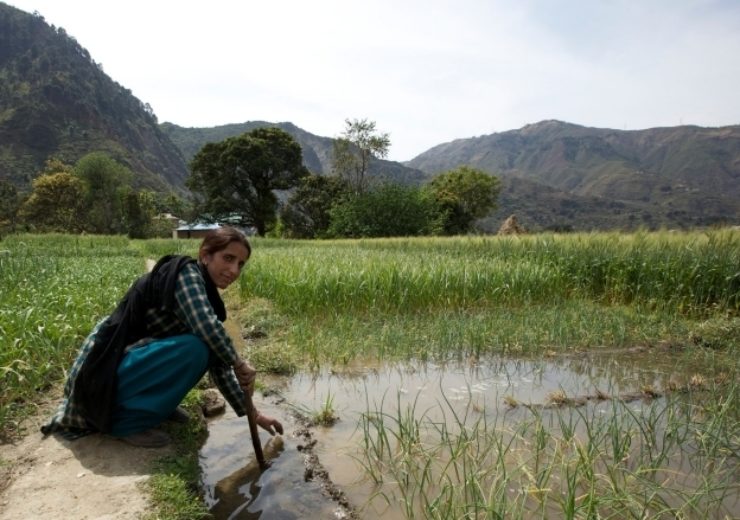The loan is expected to benefit more than 400,000 smallholder farmers, including women and pastoral communities

Image: Financial support from World Bank is expected to increase climate resilience in Himachal Pradesh agriculture. (Credit: The World Bank Group.)
The World Bank has agreed to provide a loan of $80m for the Indian state of Himachal Pradesh to improve water management practices and increase agricultural productivity.
The loan is being provided under the Integrated Project for Source Sustainability and Climate Resilient Rain-Fed Agriculture in Himachal Pradesh and it will be implemented across 428 Gram Panchayats (village councils) in 10 districts.
The project is expected to benefit more than 400,000 smallholder farmers, including women and pastoral communities.
The loan amount is being provided by World Bank subsidiary IBRD
The International Bank for Reconstruction and Development (IBRD), a subsidiary of the World Bank, is providing the loan that has a final maturity of 14.5 years, including a grace period of five years.
Government of India, Ministry of Finance, Department of Economic Affairs, Additional Secretary Sameer Kumar Khare said: “As we encourage climate-smart agricultural practices in India, farmers will need both technical and financial support to adapt agricultural practices relevant to their geography and climate.
“As a mountainous state, Himachal Pradesh is particularly vulnerable to climate change and associated risks.
“Sustainable water management practices under this project can play a big role in doubling farmers’ incomes, a goal set by the Government of India. It is, therefore, critical that the best use is made of all available technologies and resources to increase water-use efficiency.”
According to the World Bank, there are many lowland areas in the state that lack access to irrigation water and farmers depend on decreasing rainfall during the critical monsoon season.
As agricultural production and snowlines have shifted higher altitudes, production of fruits including apples has been affected, the bank said.
World Bank Country Director in India Junaid Ahmad said: “Climate change is a global issue. But, addressing its impact requires building resilience at the local level. Not surprisingly, Himachal Pradesh’s history of devolving greater responsibility to Gram Panchayats (GPs) offers the state a great advantage.
“Through GPs, Himachal Pradesh supports farmers and pastoral communities in securing their livelihoods in the face of climate variability and challenging agro-ecological conditions.”
The project is expected to improve upstream water sources in forests, pastures and grasslands, ensuring that sufficient water is available for sustainable agriculture not only in the state but also in downstream states.
Strengthening climate resilience for agriculture and its allied activities is considered to be a key component of the project, where efficient water use is the focal point.
Under the project, hydrological monitoring stations will be established to monitor water quality and quantity. The investment will lay foundation for future water budgeting to help plan better land use and agricultural investments.
